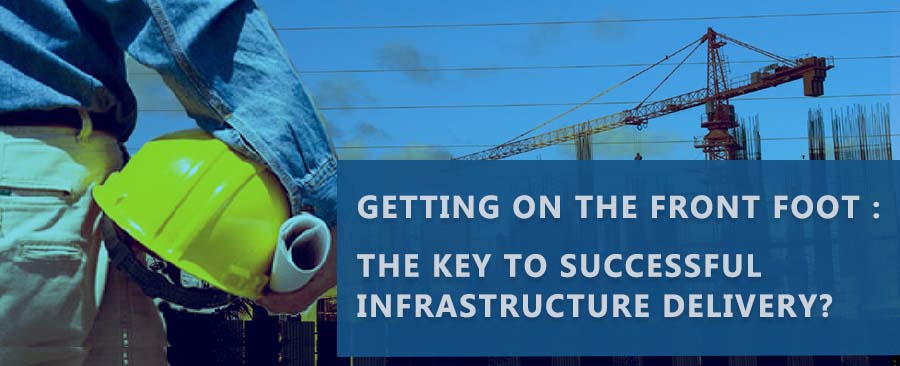
Countries around the world are positioning infrastructure investment and delivery as an integral part of the Covid-19 economic recovery. As we emerge from the pandemic, the sense of togetherness fostered over the past 18 months can play a critical role in overcoming challenges the infrastructure sector faces.
In this spirit, Jason Millett, Mace’s CEO for Consultancy, hosted a series of cross-sector client roundtable sessions to pick up on the key themes of our ‘Blueprint for Modern Infrastructure Delivery’ Insights paper. Facilitating knowledge share and brokering new relationships, the roundtable discussions, held virtually in Australia, Peru and the UK, considered how, with the added challenge of Covid-19 recovery, our industry can respond to the call to build back better.
Here, Jason shares his main takeaways from the UK session.
Despite the significant levels of investment in infrastructure around the world, and the fact that 73% of people acknowledge it as vital to economic growth, we too often get it wrong, with up to 80% of all large projects delivered late and over budget.
Clearly, this is a problem; there was little rebuttal from the participants of the roundtable. While the industry as a whole does a lot of things well, we mustn’t overlook the facts and the reality that, despite overall support for infrastructure (largely because of the end benefit), the public doesn’t necessarily hold a positive view on how it’s delivered.
We must look at ourselves and our organisations to find the solution and to understand where, along a project’s lifecycle, changes can be made.
If we consider where the most impact can be made within a scheme’s lifecycle, it’s at the start. A phase notorious for underspend and uncertainty among clients, contractors and consultants, the scope for improvement is considerable.
From setting the culture you want, to establishing clear objectives, to building the right team of people, to investing time, money and effort in the right things, getting on the front foot at the outset will see enduring positive impacts.
It’s easy to say this. It’s not always easy in practice. One reason for this, and a consensus among the roundtable participants, is that too often there is pressure to move beyond what’s seen as the ‘risk period’ that comes before construction starts, and to reach key financial gateways, where more funding is unlocked. Exacerbating this is a culture of presenting quick wins as markers of progress, rather than setting out a plan to meet objectives that fall within a long-term, outcome-based vision.
What’s more, major asset owners, often national governments, are worried about high costs before visible construction work has begun. A reluctance to spend on the upfront planning and preparation with a fear that a scheme won’t go ahead is a false economy and, if the projects do progress, they’ve not been given the attention they deserve. This results in further costs down the line anyway.
It’s an approach that stifles innovation and visionary thinking, not just at the start of a programme, but throughout, blocking advancements like modern methods of construction. It also creates a culture where the opportunity to challenge and redefine boundaries becomes increasingly restricted. As one attendee put it, once the shovel is in the ground, the options are gone.
So, we must seek to drive wholesale change at this critical stage, explaining the benefits of doing things differently.
It remains within the gift of infrastructure owners to provide strong and consistent leadership, while establishing a culture for collaboration, innovation, and problem-solving among integrated project teams. This type of leadership can transcend the ‘us and them culture’ that can sometimes get in the way of joined-up thinking, a critical factor for success.
The supply chain must play its part too.
With the ever-growing pressures placed on infrastructure schemes around time, cost, and quality, suppliers should encourage clients to be more demanding of them. This doesn’t mean creating more work and more pressure, but rather pushing clients to see what the real drivers and desired outcomes are. If time is most important, this needs to be made clear and a plan developed with that as the priority, along with a recognition of what this means for everything else.
And, for companies like Mace, which bring multi-sector experience, there is a responsibility to share knowledge and challenge sector specific habits. As one guest noted, the housing sector will often resist spending big on early utilities, drainage and highways surveys, because that’s not what they’re measured on. They can also come up against challenging stakeholders whose primary interest is protecting their assets. These types of mindsets have to be challenged with first-hand evidence and expertise proving why supporting infrastructure is integral to the long-term success of a housing scheme.
To consider an example at the other end of the spectrum – one that got it right – we can look to NHS Nightingale Hospital at the London ExCel. It was collaboration personified and there was no doubt in anyone’s mind that time was the main driver. This project is unique; incomparable to anything else we hope we ever have to build again, but the principles of getting the right team with the right culture and a clear vision, all led by one guiding client mind, are completely transferrable to any scheme in any sector and must become the norm.